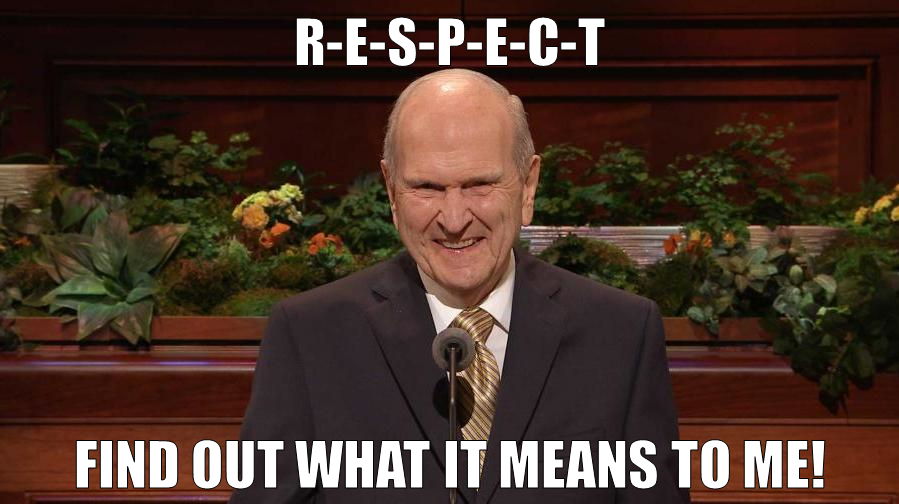In April Conference, President Nelson said the following to the men and boys in priesthood session:
Another way we can also do better and be better is how we honor the women in our lives, beginning with our wives and daughters, our mothers and sisters.
Here he echoed a number of previous statements he’s made about how important it is for men to honor and respect women. For example, in a 1999 talk, he said:
We who bear the holy priesthood have a sacred duty to honor our sisters. . . . We respect sisters—not only in our immediate families but all the wonderful sisters in our lives. As daughters of God, their potential is divine.
And in a 2006 talk, he said this:
[B]rethren, your foremost priesthood duty is to nurture your marriage—to care for, respect, honor, and love your wife. Be a blessing to her and your children.
And in a 1997 talk, he said this:
[S]ome temple marriages fail because a husband forgets that his highest and most important priesthood duty is to honor and sustain his wife. The best thing that a father can do for his children is to “love their mother.”
I’m encouraged that he’s made it a point to repeatedly remind men to be good to the women around us. But of course this isn’t the only thing that he’s said about women in Conference. Actually, when I first read the line from April Conference that I quoted above, it struck me as a little strange, because I was sure I remembered President Nelson saying some less positive things about women in Conference.
I looked back through all of his Conference talks since he was called to the Quorum of the Twelve in 1984 to look for things he said to or about women to get an overall sense of what he thinks of women. I thought this might be especially instructive given that, as has been much discussed on the blogs, President Nelson signaled his distaste for nicknames and shortenings of the Church’s name in a Conference talk back in 1990. Given this, it seems that we might pick up ideas about what he thinks about women more generally by also looking back at his Conference talks. Unfortunately, I found that not all of the things he’s said to and about women have been as nice as the quotes above.
The first pattern I see in his talks that I find troubling is that he’s praised women for being quiet about any complaints they may have. In his first Conference talk after being called, he praised his wife thusly:
Her sacrifices to bring our ten wonderful children into this world, teaching and training them, while always supporting me without a murmur through my responsibilities in the Church and in my profession, are monumental.

